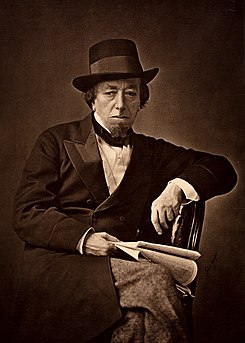This brief article is based on an elective I have presented many times for the Open University Business School. The main idea is not mine. I have searched for the article from which it is thieved (30 years ago). If someone can direct me to it I will be happy to give the authors full credit.
___
The word 'luck'is banned from the business lexicon. There is no such thing as luck (apparently). Successful people are never lucky. Success springs from talent, diligence, attitude, tenacity, cunning, knowledge and experience; I will not go on. If success required an element of luck the business section of airport bookshops would be replaced by scratch card vendors.
If you suggest that a successful colleague was lucky someone is bound to harumph and quote (usually misquote) Gary Player. This erroneous notion is nicely explored in Malcolm Gladwell's book, Outliers if you're interested.
However, I will stick with western capitalist myth that all success and wealth is richly deserved and has nothing to do with accidents of birth, genetics, gender, race, geography, parenting, connections, other people's work or kismet.
This short piece describes 3 behaviours that can seriously up your chances of fortune smiling on you and not laughing in your face. Each behaviour has a successful sponsor from history so don't try to argue with it. I have not included advice from any unsuccessful people. First, because clearly such people lack the moralilty, intellect or diligence to make the advice they offer valuable and secondly we don't know their names.
Behaviour 1: The Kettering principle.
'Chance favours those in motion'
'Keep on going and the chances are you will stumble on something, perhaps when you are least expecting it.
I have never heard of anyone stumbling on something sitting down.’
 Charles Kettering said this.
Charles Kettering said this.He was a successful businessman and inventor in the early 20th century. He owned 186 patents.
Good inventions: electric starters and lights for cars.
Not so good inventions: putting lead in petrol and CFCs in fridges.
To be fair he had no idea he was poisoning the air we breathe and making the earth uninhabitable. Chuck may have seen these developments as fortuitous. Perhaps they were not so lucky for the rest of us. Still, we don't need to crank the car in the morning.
His advice was to keep busy. Get out of bed. Communicate, consult, collaborate. Be interested in everything and everybody. Be energetic. Explore. Persist. Experiment. Basically get out there and get involved, not necessarily with a specific purpose in mind.
This may seem obvious but this is the pre-requisite for our next 2 behaviours.
Behaviour 2: The Pasteur Principle.
'Chance favours the prepared mind'
‘Dans les champ de l’observation, le hasard ne favorise que les esprits prepares’
Louis P was the French Alexander Fleming (and vice versa if you see what I mean). These 2 biologists changed the course of humanity.
The principle is that individuals should be constantly developing knowledge, making observations and looking for associations. Always look for linkage between seemingly unconnected phenomena and disciplines. Here lies the motherlode, the wellspring of creative ideas and innovation.
Louis said it and Sir Alex is the great example. He was a messy chap. He didn't tidy up his lab before the August Bank Holiday. Over the doubtless warm long weekend something unpleasant developed in one of his petri dishes. On his return he exclaimed "that's funny", made a connection and the world was given penicillin. There are many examples of this variety of 'luck'. Dr Spenser Silver invented a glue that was not sticky enough; the Post-It Note was born. In 1960 2 guys came up with light amplification by stimulated emission of radiation . At the time the laser was an invention looking for an application. And then someone suggested using it to torture Sean Connery, job done.
Both of these inventions were 'solutions looking for problems to solve'; it took the creative mind to bridge the gap.
So stay awake, never stop learning and don't let stress and the urgent things in life close down your creative faculties.
Behaviour 3: The Disraeli Principle.
'Chance favours individualised action'
‘We make our fortunes we call them fate’
He is the former British Prime Minister and author of romantic fiction.
Companies and products need some form of differentiation to be successful we are told. So do people.
Good fortune favours those who behave in distinctive ways. They have something that sets them apart. They have a unusual skill or achievement. Fortune is a process where someone is singled out.
An individual may be the greatest musician, novelist, inventor, business leader (you get the picture) but if no-one notices they are left spectating not participating. I often wonder how much unrecognised talent has gone to waste in human history. I don't need to wonder how much 'untalent' we have have to tolerate in all spheres of human activity (with the most disastrous consequences). I won't mention any names but feel free to vent.
Plato described a ship in a storm where the loud and authoritative captain uselessly lashes himself to the wheel while to 'true navigator' lies bound and gagged in the hold.
So here's the question. If Benjamin D is correct then we should not be facing a diversity issue in our established organisations. If distinctiveness were a asset in attracting good fortune why are many of our leading companies and institutions full of white middle aged men? Do people need to be distinctive in the right way? Ie in a way that is not distinctive at all?
Perhaps the distinction created by gender, ethnicity, sexual preference or background is a bit too distinctive for some? Over half of our available talent pool is still being largely overlooked. Of course progress is being made. If Ben D was completely right would we be having to work so hard at it?
So that's Part One. Let me know your thoughts. There is a lot more to say and this subject can lead us in many directions and discussions. Part Two will deal whether this can be applied to organizations.


No comments:
Post a Comment